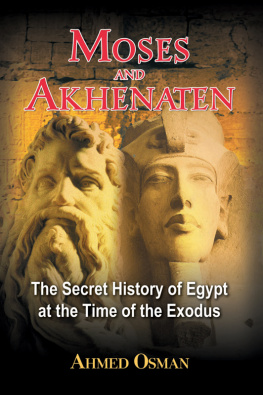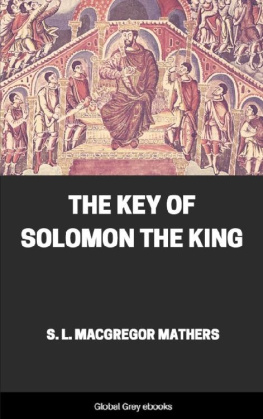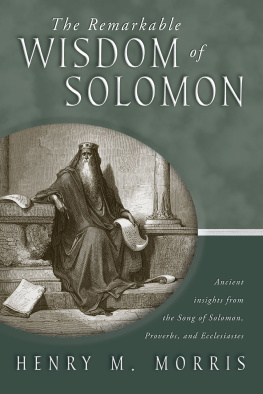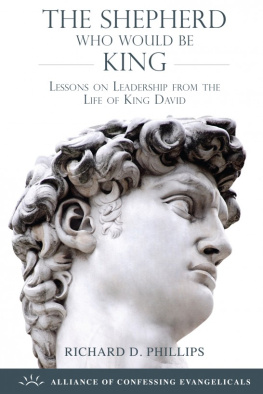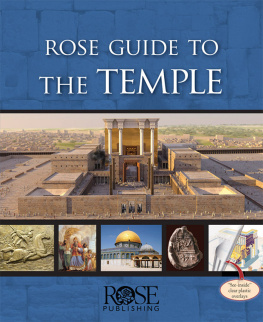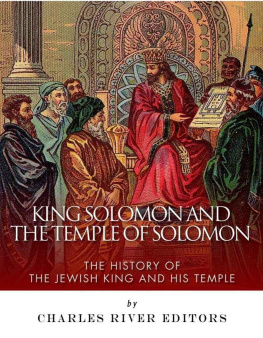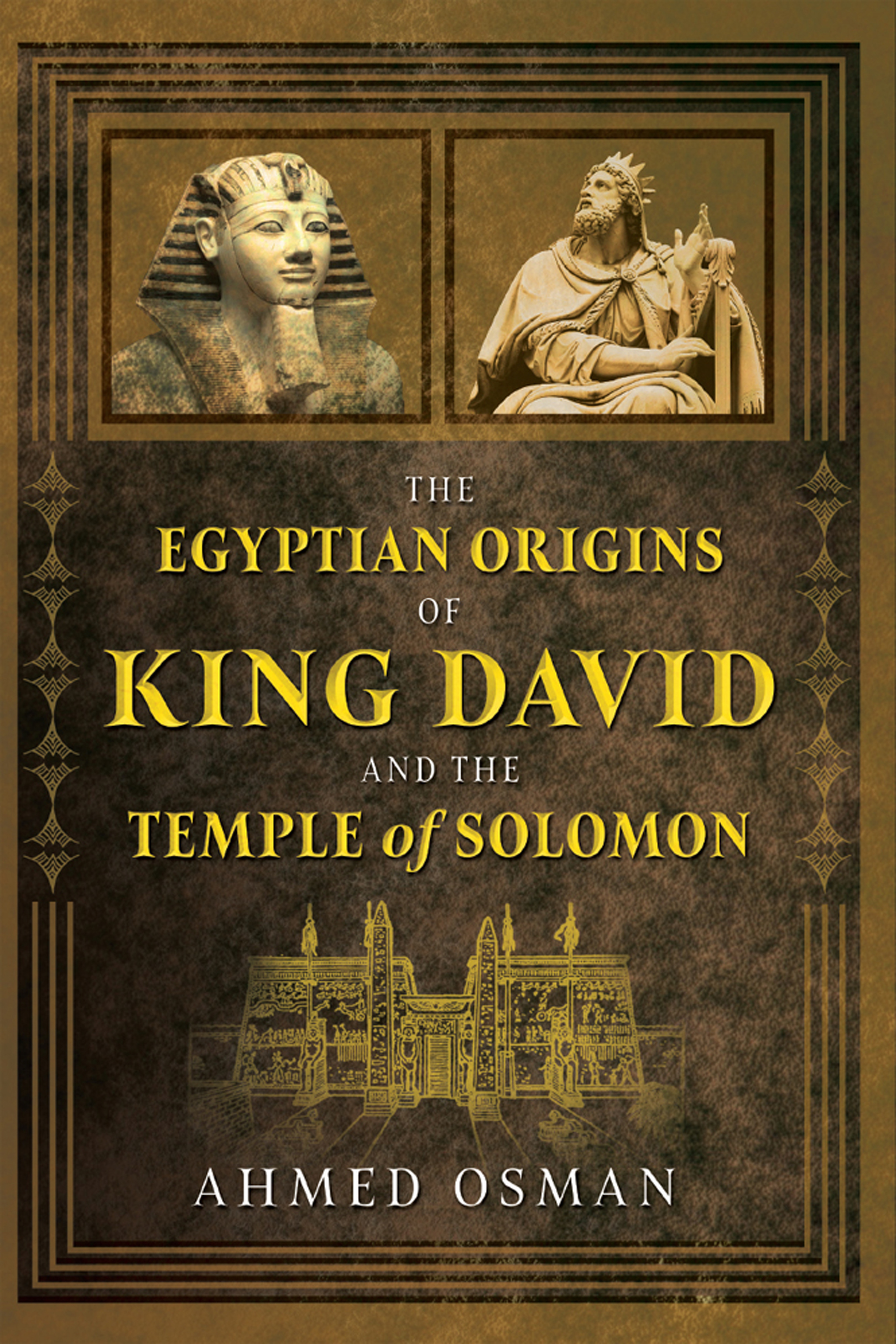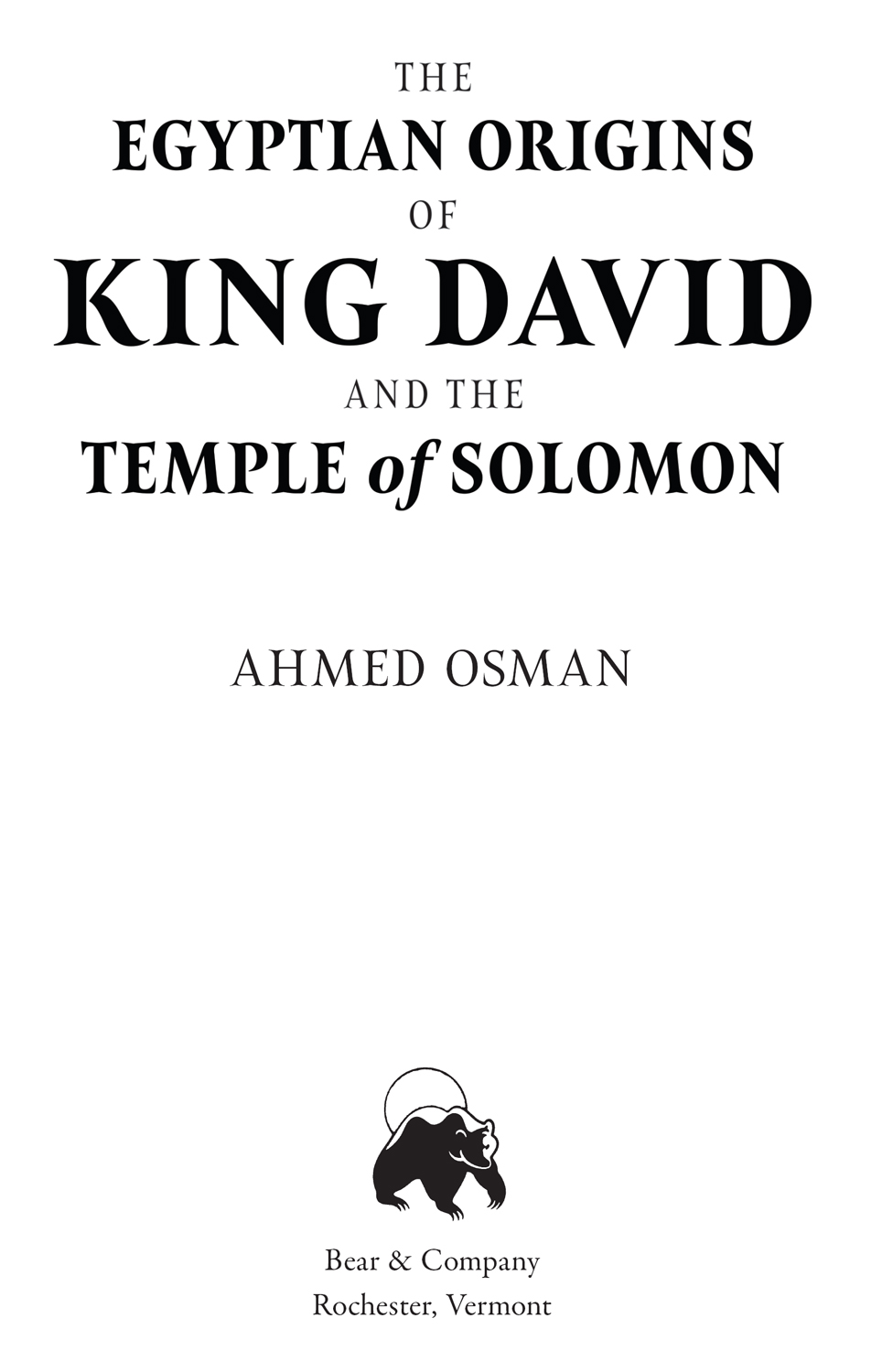Ahmed Osman - The Egyptian Origins of King David and the Temple of Solomon
Here you can read online Ahmed Osman - The Egyptian Origins of King David and the Temple of Solomon full text of the book (entire story) in english for free. Download pdf and epub, get meaning, cover and reviews about this ebook. year: 2019, publisher: Bear Company, genre: History. Description of the work, (preface) as well as reviews are available. Best literature library LitArk.com created for fans of good reading and offers a wide selection of genres:
Romance novel
Science fiction
Adventure
Detective
Science
History
Home and family
Prose
Art
Politics
Computer
Non-fiction
Religion
Business
Children
Humor
Choose a favorite category and find really read worthwhile books. Enjoy immersion in the world of imagination, feel the emotions of the characters or learn something new for yourself, make an fascinating discovery.

- Book:The Egyptian Origins of King David and the Temple of Solomon
- Author:
- Publisher:Bear Company
- Genre:
- Year:2019
- Rating:3 / 5
- Favourites:Add to favourites
- Your mark:
The Egyptian Origins of King David and the Temple of Solomon: summary, description and annotation
We offer to read an annotation, description, summary or preface (depends on what the author of the book "The Egyptian Origins of King David and the Temple of Solomon" wrote himself). If you haven't found the necessary information about the book — write in the comments, we will try to find it.
Identifies King David as Pharaoh Tuthmosis III of the 18th Dynasty and Davids son Solomon as Pharaoh Amenhotep, Tuthmosiss successor
Shows how the Temple of Solomon described in the Bible corresponds with the Mortuary Temple of Luxor in Egypt
Explains how David was not a descendant of Isaac but his father and how biblical narrators changed the original story of Abraham and Isaac to hide his Egyptian identity
During the last two centuries, thousands of ancient documents from different sites in the Middle East have been uncovered. However, no archaeological discovery speaks of King David or Solomon, his son and successor, directly or in directly. Was King David a real person or a legend like King Arthur? Proposing that David was a genuine historical figure, Ahmed Osman explores how his identity may be radically different than what is described in religious texts.
Drawing on recent archaeological, historical, and biblical evidence from Egypt, Osman shows that David lived in Thebes, Egypt, rather than Jerusalem; that he lived five centuries earlier than previously thought, during the 15th rather than the 10th century B.C.; and that David was not a descendant of Isaac but was, in fact, Isaacs father. The author also reveals Davids true Egyptian identity: Pharaoh Tuthmosis III of the 18th Dynasty.
Confirming evidence from rabbinic literature that indicates Isaac was not Abrahams son, despite the version provided in Genesis, Osman demonstrates how biblical narrators replaced David with Abraham the Hebrew to hide the Egyptian identity of Isaacs father. He shows how Egyptian historical and archaeological sources depict figures that match Davids and Solomons known characteristics in many ways, including accounts of a great empire between the Euphrates and the Nile that corresponds with Davids empire as described in the Bible. Extending his research further, the author shows that King Solomon, King Davids son, corresponds in reality to Pharaoh Amenhotep, successor of Tuthmosis III, the pharaoh who stands out in the dynastic history of Egypt not only for his peaceful reign but also as the builder of the Temple of Luxor and the famed Mortuary Temple at Luxor, which matches the biblical descriptions of Solomons Temple.
Unveiling the real history behind the biblical story of King David, Osman reveals that the great ancestor of the Israelites was, in fact, Egyptian.
Ahmed Osman: author's other books
Who wrote The Egyptian Origins of King David and the Temple of Solomon? Find out the surname, the name of the author of the book and a list of all author's works by series.

